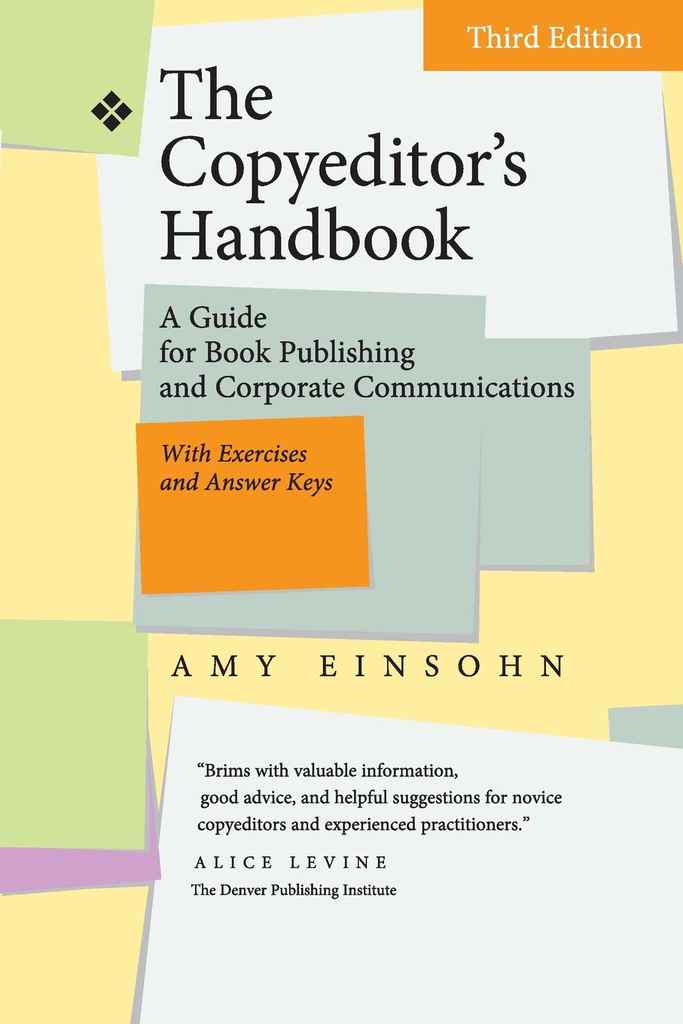Blog •
Last updated on Jul 15, 2024
18 Books on Editing All Professionals Should Read
About the author
Reedsy's editorial team is a diverse group of industry experts devoted to helping authors write and publish beautiful books.
More about the Reedsy Editorial Team →You know a book is well-edited when you read it cover to cover without ever considering the role of the editor. However, this means it’s easy to forget just how much hard work editors put into a project. Getting to that point is not easy — but the good news is you can always get support from fellow editors through the books they’ve published on honing your craft.
To help you find the right resource for your needs, we’ve put together a list of eighteen books we think every editor should read. These books explore broader topics concerning the industry, as well as more niche questions, like how to better help authors portray characters’ emotions or how to deal with purple prose like a pro. Some recommendations even come from our very own Reedsy professionals, giving you a glimpse into the editing process of an expert. There’s something for everyone here, so get ready to add some new titles to your TBR!
Q: What book on editing should every editor have on their shelf?
Suggested answer
Editing Fiction at the Sentence Level by Louise Harnby is one of those rare gems that speaks to both editors and authors without drowning you in jargon. She explains things with clarity and care, offering practical examples of common issues like repetition, overwriting, clunky rhythm, and filtering. It’s easily one of the most useful, thoughtful guides out there for anyone serious about polishing fiction at the sentence level. A solid style guide is essential, too.
Eilidh is available to hire on Reedsy ⏺
You need style references: New Oxford Style Manual (British English) and the Chicago Manual of style (US English). Available online too at a price!
Alex is available to hire on Reedsy ⏺
The essentials
Let’s start with the basics. These first six picks are essential reading for any aspiring editing professional, covering everything from understanding the industry and the editing process to fundamental narrative and storytelling techniques.
1. What Editors Do edited by Peter Ginna
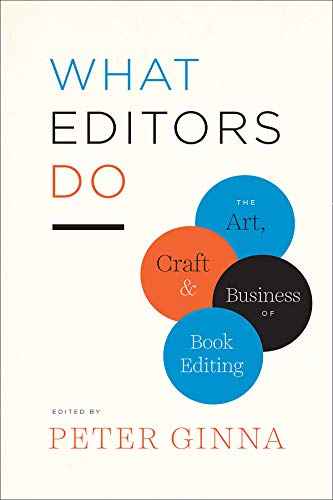
What Editors Do by Peter Ginna is a great place to start, as it provides a comprehensive overview of the editing profession, covering everything from the craft itself, to establishing rapport with authors, to the practicalities and financial realities of being an editor. Through a curated collection of essays from various editors in traditional publishing — including children’s book editors, academic editors, and those who have worked in small presses — the stories here are diverse both in content and tone, giving you a nuanced picture of the day-to-day of an editor and the industry as a whole.
2. The Chicago Manual of Style
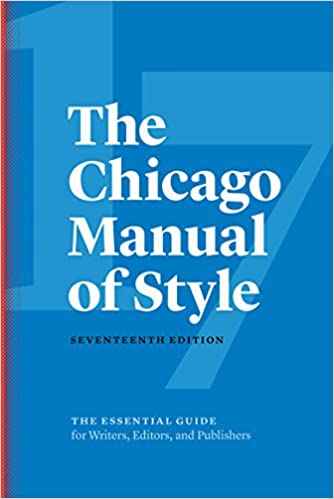
This recommendation comes courtesy of Reedsy editor Rebecca Heyman. While it may not seem like the most exhilarating read, The Chicago Manual of Style — largely considered the industry standard when it comes to style guides — is perhaps one of the most useful books an editor can have on hand, especially when you’re working on a copy edit or a proofread.
As an editor, it’s not only your job to familiarize yourself with Chicago style, but to make sure that your author can format their manuscript flawlessly to this standard. From punctuation rules to spelling and accepted abbreviations, you’ll eventually come to know most of these stylistic standards by heart, but it’s always reassuring to have the actual guide on hand just in case some obscure detail comes up.
Note that the manual is updated every now and then, so we recommend subscribing to the online version to stay on the cutting edge.
3. The Best Punctuation Book, Period: A Comprehensive Guide for Every Writer, Editor, Student, and Businessperson by June Casagrande
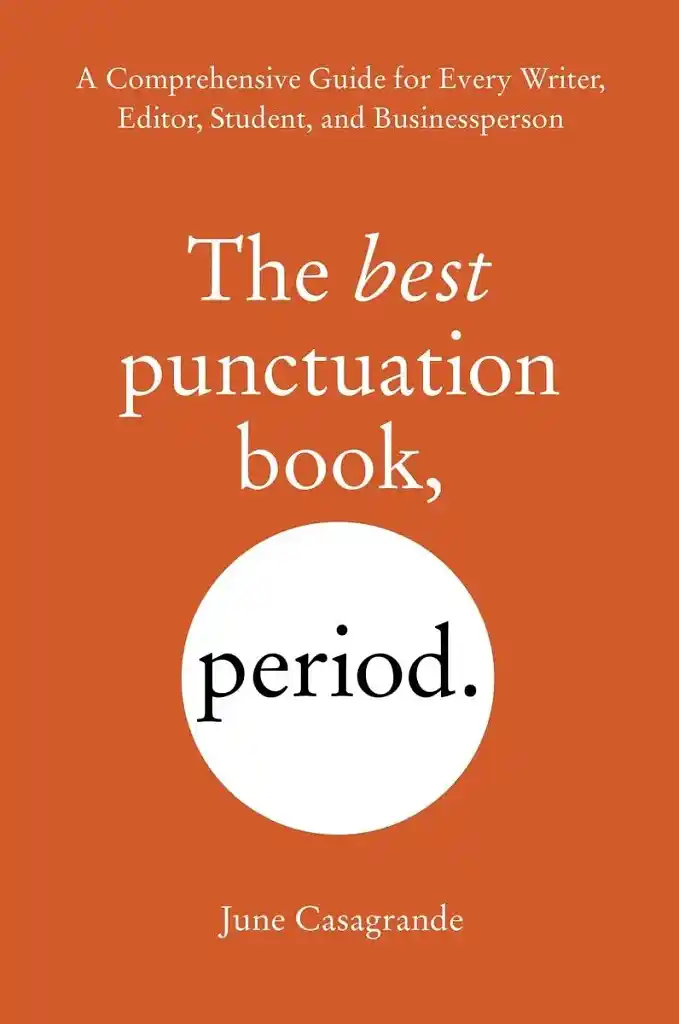 The Best Punctuation Book, Period is another indispensable tool for editors everywhere; for every grammar-related question you could (and couldn’t) think to ask, June Casagrande and her expert “Punctuation Panel” have an answer.
The Best Punctuation Book, Period is another indispensable tool for editors everywhere; for every grammar-related question you could (and couldn’t) think to ask, June Casagrande and her expert “Punctuation Panel” have an answer.
It doesn’t stop there, as Casagrande goes into great detail about three additional style guides — each of which has its own rules for grammar and punctuation that can complicate the editing process. Fortunately, Casagrande has you covered on that front too with her master list of commonly punctuated terms that details how the usage of each one will differ between formats. There’s even a handy quick-reference section full of answers to common punctuation questions that makes editing messy manuscripts a breeze. This is a book you’ll want a second copy of, as you’ll no doubt be filling your first with sticky notes and annotations from front to back.
4. The Emotion Thesaurus by Becca Puglisi and Angela Ackerman
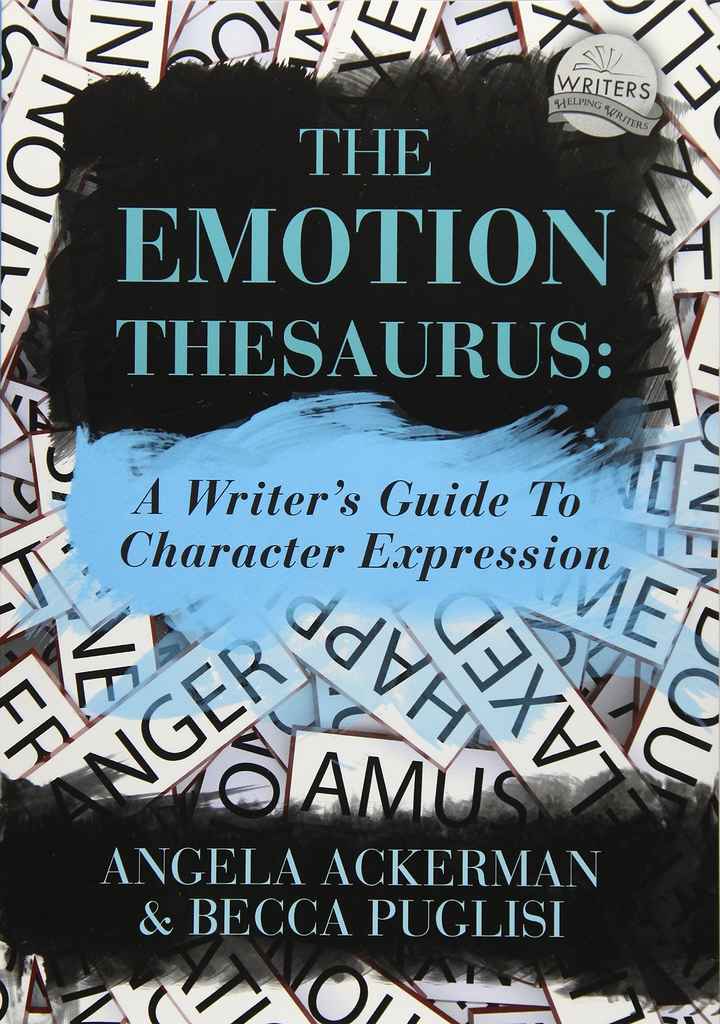
If you want to expand on your understanding of more subjective writing topics, The Emotion Thesaurus is a great choice. As an editor and a reader, you’ve probably encountered overdone portrayals of character emotions too many times to count. Cliché phrases like “Sam’s heart skipped a beat,” or “A shiver went down Amelia’s spine” that keep cropping up ought to be revised, yet you may struggle to find a good alternative.
Taking you through countless emotion-related issues encountered in writing and suggesting a variety of cues to all sorts of sensations, this book is a great assistant for authors and editors alike in their journeys toward more vivid and memorable prose.
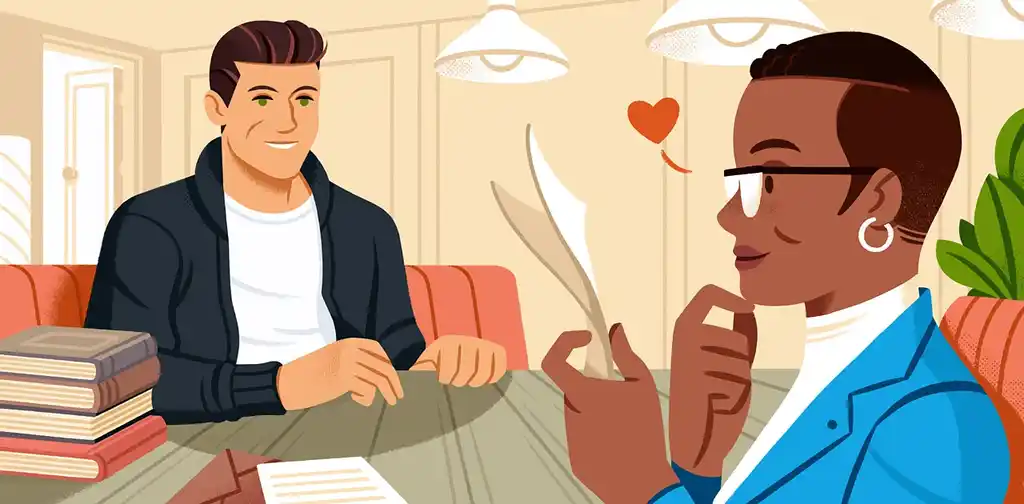
FREE RESOURCE
Quote Template for Editors
Lay out your rates, deliverables, and timeline with a professional template.
5. The Artful Edit by Susan Bell
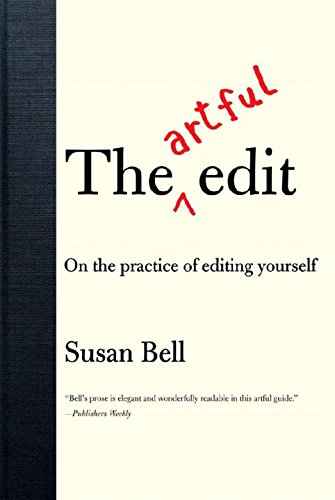
Once you’ve done enough technical reading, you might be looking for something to inspire your creativity. If that’s the case, The Artful Edit is the perfect pick. After all, being an editor means knowing exactly how to balance out an author’s writing, curbing their purple prose or encouraging their imagination depending on the circumstance. As important as it is to practice the mechanical aspects of editing, keeping your artistic side polished and ready to tap into when the need arises is just as essential.
Meditative in tone and generous with examples (including the writings of F. Scott Fitzgerald, Michael Ondaatje, and Tracy Kidder), The Artful Edit is as accessible as it is insightful. If you’re looking to strengthen or renew your love for the written word, then there’s hardly a better book to get started with.
6. The Hero with a Thousand Faces by Joseph Campbell
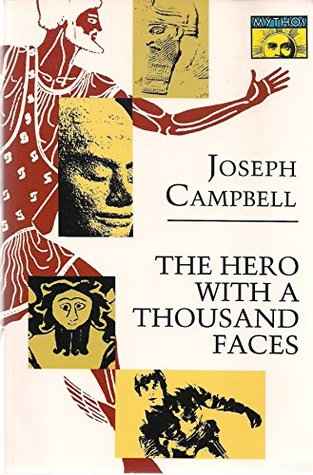
For all you aspiring fiction developmental editors out there, The Hero with a Thousand Faces by Joseph Campbell breaks down the fundamentals of character arcs and plots in myths by diving into the psyches of well-known heroes. Originally published in 1948, this is the foundational book about books; you’ve probably heard of the hero’s journey — well, this is where the concept originated!
With his expert knowledge in comparative mythology gathered through years of teaching and research, Campbell’s analysis will give you a perspective on storytelling far beyond the scope of a regular reader. It’s a bit of an academic read, but for the inquisitive mind it is an invaluable resource to help you shore up a classic plot that makes sense and keeps readers enthralled.
Want to give your eyes some time to rest? Give these editing podcasts a go!
Q: Which editing book has had the biggest impact on your editing style?
Suggested answer
Grammar tomes can be dry reading, so I gravitate toward books that use humor to instruct. A few of my favorites:
- The Deluxe Transitive Vampire by Sarah Elizabeth Gordon is as informative as it is irreverent. The book's subtitle says it all: The Ultimate Handbook of Grammar for the Innocent, the Eager, and the Doomed. Also, it has pictures of bats. And gargoyles. And terrifying debutantes.
- Eats, Shoots & Leaves by Lynne Truss: Look no further for a book on punctuation that will actually have you up late at night turning pages. By showing the hilarious consequences of funky punctuation, Truss teaches the importance of precision, accuracy, and keeping your sense of humor in the face of a pile of tedious corrections.
- The Subversive Copy Editor by Carol Saller offers advice beyond grammar and style, including the importance of maintaining the flexibility and transparency necessary to make it as a professional editor, how to work with "difficult" authors, and keeping the end reader in mind at all times. It's full of funny examples of questions writers and editors have submitted to The Chicago Manual of Style.
Books for writers can also be a goldmine for editors. These in particular have had an enormous influence on how I edit:
- Story and Dialogue by Robert McKee: While these are aimed more at screenwriters than novel writers, they're both comprehensive blueprints that help you think more clearly about the building blocks of fiction. I've pulled material from both of them to populate the templates I use for developmental editing, and I give clients one-page summaries of them with my reports. McKee's instruction is clear, concise, and insightful.
- Creating Character Arcs by K.M. Weiland is brilliant; I credit it with helping me make the leap from novice writer to published author. It takes apart and explains all the pieces that make up character, and it offers a structural framework I've used to plot every book I've written since I read it. The principles I learned from this book have helped me ensure my clients' characters are as developed and effective as possible for the stories they want to tell.
Jules is available to hire on Reedsy ⏺
Mastering different types of editing
When it comes to editing, there are three major kinds that come together to produce a polished manuscript: developmental editing, copy editing, and proofreading. In this section we’ll be recommending a book to help you understand each type — before you know it, you’ll be a master of all three.
7. Developmental Editing by Scott Norton
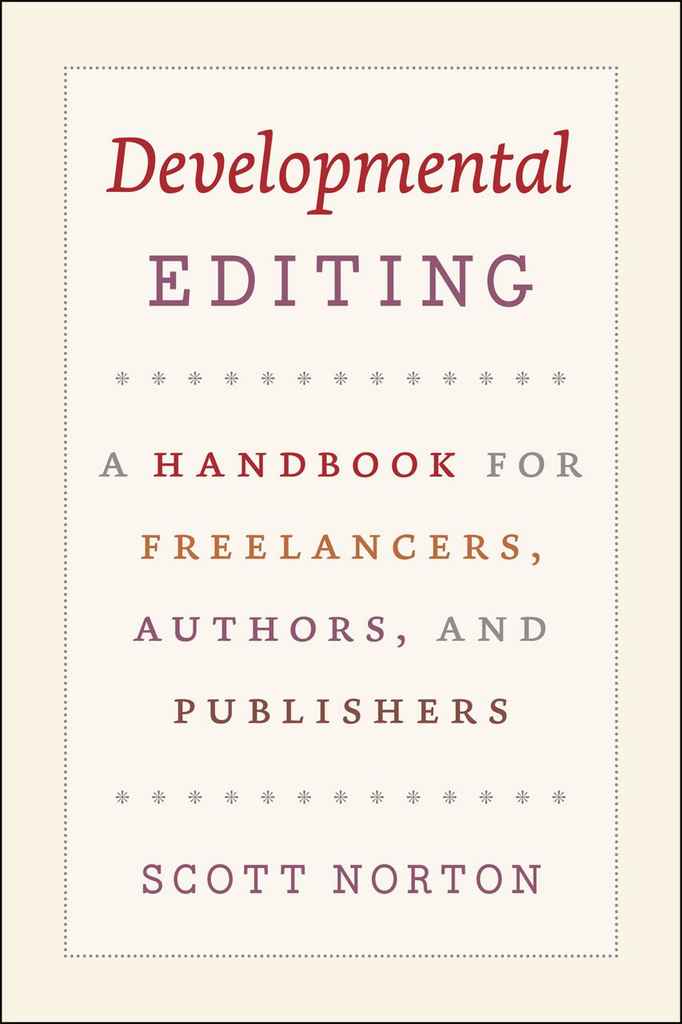
The role of a developmental editor is to restructure a manuscript and tackle broad issues of flow, theme, and story structure. Just as you might expect, Scott Norton’s Developmental Editing is your one-stop shop for anything and everything in this domain.
It should be noted that Norton focuses on non-fiction writing, so rather than working on plotting and pacing, he covers how to identify a central argument, find a hook, and put together a compelling proposal. Even so, this book is full of useful information that will benefit editors of every kind; drawing on his experience working with a diverse range of authors, Norton also provides an excellent guide to editing-adjacent topics, such as navigating networking and communication in the publishing industry. As such, Developmental Editing is an essential read for editors who are just starting their journey in non-fiction publishing.
Note: if you’re looking to learn more about developmental editing of fiction more specifically, we recommend The Hero with a Thousand Faces above.
8. The Copyeditor’s Handbook by Amy Einsohn and Marilyn Schwartz
Frequently revised to keep up with the latest linguistic trends, The Copyeditor’s Handbook is a vital addition to any aspiring copy editor’s bookshelf, particularly if you want a better grasp of correct English usage. Far from a stern lecture on punctuation, Einsohn and Schwartze act like trusted friends, giving you some of their best personal advice to kickstart or improve your career in copy editing. Topics covered include an overview of the general editing process, tips on the latest language and grammatical practices, and a list of online resources that you may find handy in your career.
With this book in your arsenal, you’ll be prepared to work with all kinds of authors, especially those that are self-published. While it may seem daunting at first, full-time freelancing can be incredibly rewarding if you know how to make the most of it.
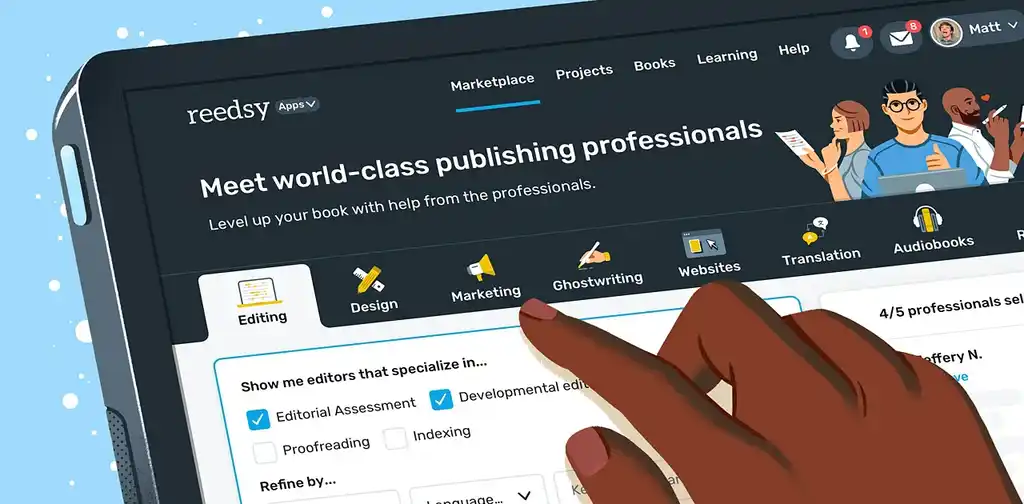
JOIN OUR NETWORK
Supercharge your freelance career
Find projects, set your own rates, and get free resources for growing your business.
9. The McGraw-Hill Desk Reference for Editors, Writers, and Proofreaders by K.D. Sullivan and Merilee Eggleston
 For a comprehensive look at the proofreading process, there’s no better guide than The McGraw-Hill Desk Reference, which contains subject-specific guidelines that will help you tackle various different kinds of content, from academic papers and technical documents to corporate communications, so that you can tailor your approach depending on the manuscript.
For a comprehensive look at the proofreading process, there’s no better guide than The McGraw-Hill Desk Reference, which contains subject-specific guidelines that will help you tackle various different kinds of content, from academic papers and technical documents to corporate communications, so that you can tailor your approach depending on the manuscript.
The McGraw-Hill Desk Reference also includes a number of practical checklists that you can use to ensure your proofreading is consistently high quality — they even provide a list of additional resources that you can consult to further your professional development and stay up to date with the current industry standards.
10. Revision and Self Editing for Publication: Techniques for Transforming your First Draft into a Finished Novel by James Scott Bell
 In addition to the three major kinds of editing, revision and self editing are key parts of the process. As an editor, you may find yourself in a position where you can identify a problem with a manuscript, but you can’t quite put your finger on what the most effective solution would be. If that sounds familiar, then Revision and Self Editing for Publication is for you.
In addition to the three major kinds of editing, revision and self editing are key parts of the process. As an editor, you may find yourself in a position where you can identify a problem with a manuscript, but you can’t quite put your finger on what the most effective solution would be. If that sounds familiar, then Revision and Self Editing for Publication is for you.
Though it’s primarily aimed at authors, Bell provides a wealth of specific and detailed revision techniques on every novel component you can think of; plot, characters, setting, voice, this book has it all. His “LOCK” system is an excellent frame of reference that will help you ensure the manuscript you’re working on remains both interesting and cohesive throughout. Beyond the specifics of novel writing, Revision and Self Editing includes an engaging discussion on the mindset required for effective revision that will help authors foster a positive and productive approach to the editing process. As an editor, understanding this process is equally helpful, so that you can provide support and be sensitive to your author’s needs when you give feedback.
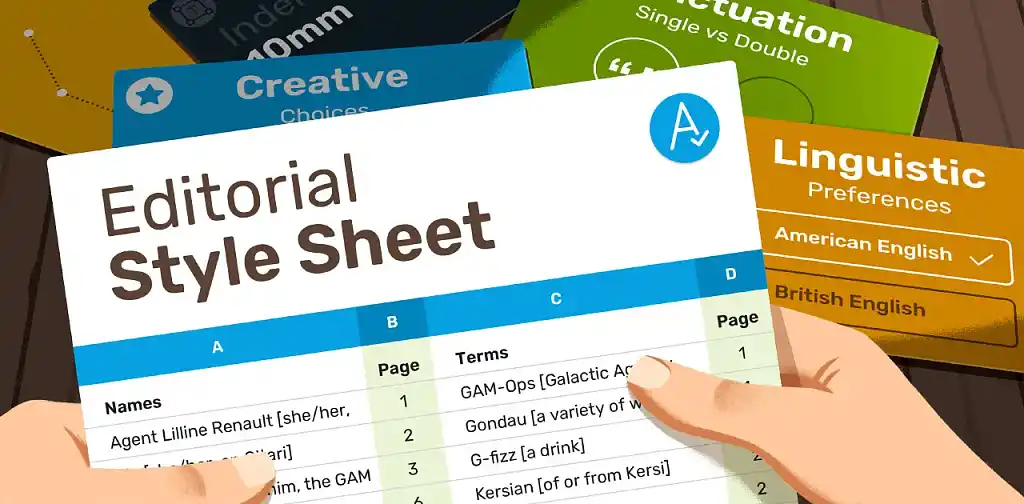
FREE RESOURCE
Editorial Style Sheet Templates
Set up a sleek and easy-to-use style to keep track of all your creative decisions.
Genre-specific editing
For those of you who have mastered the foundations of editing but want to further specialize in a specific genre, it’s time to take a deep dive. Maybe you know sci-fi like the back of your hand, but your romance radar could do with some fine tuning; these next four picks will help you understand what makes different genres tick, and how you can apply that knowledge to your editing process.
11. Anatomy of Genres by John Truby
 If you need help understanding the differences in story structure across a variety of different genres, look no further than Anatomy of Genres, which breaks down the fundamentals of a staggering fourteen different genres, from horror to fantasy to memoir. John Truby gets right to the core of each one he explores, explaining what elevates a story in a given genre from good to great.
If you need help understanding the differences in story structure across a variety of different genres, look no further than Anatomy of Genres, which breaks down the fundamentals of a staggering fourteen different genres, from horror to fantasy to memoir. John Truby gets right to the core of each one he explores, explaining what elevates a story in a given genre from good to great.
Clocking in at over seven hundred pages, the level of depth Truby goes into is as impressive as it is expansive. Understanding the essential components that define a genre will help you evaluate whether a manuscript adheres to — or effectively innovates on — the standards set by its contemporaries. Truby provides a wealth of practical advice, on top of numerous checklists and exercises that editors can use to systematically evaluate and improve a manuscript. Study it until you know it like the back of your hand, and keep it within arm’s reach for easy reference — it’s that good.
12. The Fantasy Fiction Formula by Deborah Chester
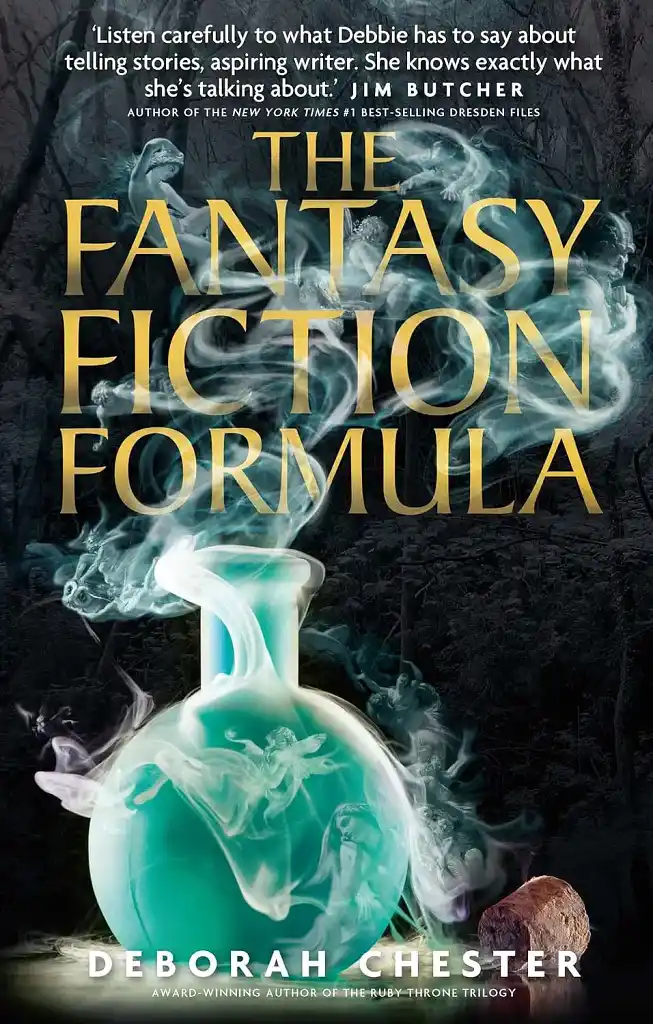 For more specific advice on the Fantasy genre in particular, Reedsy’s own Chersti Nieveen recommends The Fantasy Fiction Formula. In it, Deborah Chester walks you through the lengthy process of writing a fantasy novel, from fundamental writing elements to the construction of natural sounding dialogue, but its intricate breakdown of worldbuilding is where it really shines.
For more specific advice on the Fantasy genre in particular, Reedsy’s own Chersti Nieveen recommends The Fantasy Fiction Formula. In it, Deborah Chester walks you through the lengthy process of writing a fantasy novel, from fundamental writing elements to the construction of natural sounding dialogue, but its intricate breakdown of worldbuilding is where it really shines.
More so than any other genre, the success of a fantasy book hinges on the quality of its worldbuilding; immersion is the name of the game, so any discrepancies that may cause readers to question the believability of the world can seriously harm the experience. As such, while this book is primarily aimed at authors, it should also be considered required reading for any aspiring fantasy editor, as they too need to be extra rigorous when evaluating a fantasy world. The Fantasy Fiction Formula provides an excellent framework to help you understand what makes a fantasy world captivating, so you’ll be equipped to iron out any pesky inconsistencies you might spot while editing.
13. Romancing the Beat: Story Structure for Romance Novels by Gwen Hayes
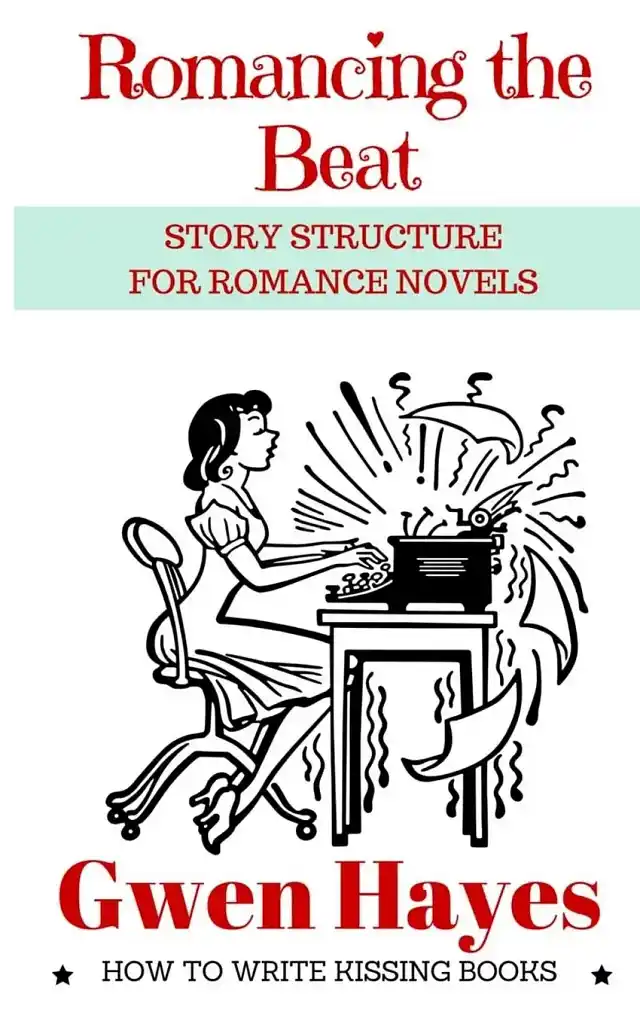 Romance novels follow a much more rigid structure compared to most other genres, as the plot, themes, and narrative must be constructed around the central romance arc, rather than the other way around. Accordingly, there are certain tropes and story beats that must be present to meet the reader’s expectations, and Romancing the Beat will help you pinpoint exactly what they are and how to ignite that romantic spark.
Romance novels follow a much more rigid structure compared to most other genres, as the plot, themes, and narrative must be constructed around the central romance arc, rather than the other way around. Accordingly, there are certain tropes and story beats that must be present to meet the reader’s expectations, and Romancing the Beat will help you pinpoint exactly what they are and how to ignite that romantic spark.
Gwen Hayes likens the framework for romance novels to a recipe; you can add your own flair and ingredients to make yours unique, but if you want to bake a cake, then eggs, flour, and sugar are essential. She breaks the recipe down into four distinct phases, each with five specific beats to follow; her “beat sheet” is an excellent checklist for anyone in the process of editing a romance novel. Short and sweet at just seventy pages long, there’s no reason not to give this one a go.
14. Second Sight: An Editor's Talks on Writing, Revising, and Publishing Books for Children and Young Adults by Cheryl B. Klein
 Klein worked as a continuity editor for the American editions of the sixth and seventh Harry Potter books — she’s got the credentials, so you can trust that her insight is legit. Whether you dream of perfecting a book for children or young adults, or you want to take your YA editing skills up a notch, a fresh set of eyes is always welcome, and that’s where a continuity editor comes in.
Klein worked as a continuity editor for the American editions of the sixth and seventh Harry Potter books — she’s got the credentials, so you can trust that her insight is legit. Whether you dream of perfecting a book for children or young adults, or you want to take your YA editing skills up a notch, a fresh set of eyes is always welcome, and that’s where a continuity editor comes in.
A lot of articles and books about editing discuss high-level strategies without putting them into practice, but that is not the case for Second Sight. Klein provides plenty of examples from successful books she’s worked on in the past, providing a window into the mind of an acclaimed continuity editor that will help anyone on their editing journey, regardless of experience level.
Q: Do you have a favorite resource for dealing with genre-specific editing?
Suggested answer
For speculative fiction, the Mythcreants website and blog resources are amazing. I particularly like that they have clearly stated and interesting opinions and takes on content editing questions, such as the use of multiple points of view. (I know that fantasy authors can get quite trigger happy about using multiple points of view to showcase different parts of their world.) Mythcreants also has a social justice orientation and a writer community, both of which I appreciate.
As for books, Deborah Chester's The Fantasy Fiction Formula is excellent for fantasy. Despite the word "formula" in the title, the book isn't selling a prescriptive formula. Rather, it's a treasure trove of really useful advice and tidbits gleaned from years of working in publishing.
Andrew is available to hire on Reedsy ⏺
I edit Christian fiction and theology, and my go-to is the SBL Manual of Style. I use the capitalization and abbreviation guides on almost every project.
Mairi is available to hire on Reedsy ⏺
Learning from the legends
We’ll end on a collection of books written either by or about some of the most successful authors and editors in the history of publishing. Studying the greats is a surefire way to improve — knowing how the pros go about their process will not only serve as inspiration, but help you take your own editing skills to new heights.
15. Max Perkins: Editor of Genius by A. Scott Berg
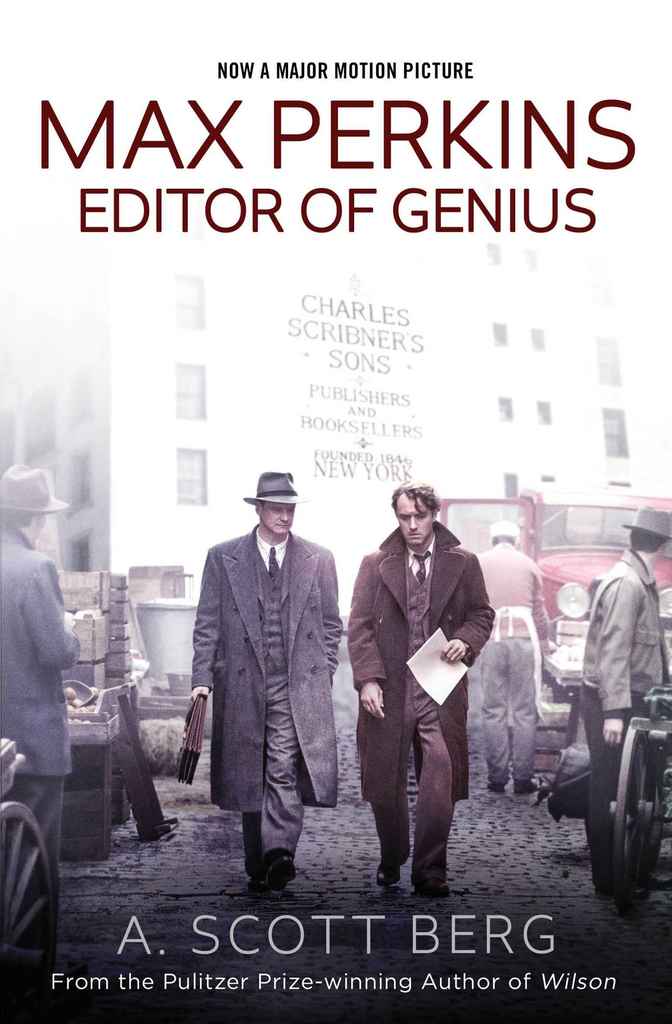
If you’re curious about the life and mind of one of publishing’s most legendary editors, A. Scott Berg’s biography of Max Perkins is like stepping behind the curtain to get an exclusive scoop. The editor of 20th-century luminaries such as Ernest Hemingway and F. Scott Fitzgerald, Editor of Genius follows Perkins’ professional journey with various authors, both known and unknown at the time he met them. Berg paints a portrait of an immense editing talent whose love of good literature transcended the standards upheld by industry gatekeepers at the time.
For anyone with big dreams of influencing the literary landscape of the future, Perkins’s colorful experiences and passion, illustrated by the legendary editor’s correspondence with famous writers, will remind you how important and exciting editing can be; it will no doubt spark a light in you as you navigate your own career.
16. Stein on Writing by Sol Stein
 Another recommendation courtesy of Chersti Nieveen, Stein on Writing is one of the best editing guides on the market for aspiring and professional editors alike, containing over 60 different checks and balances for you to keep in mind throughout the editing process from a veteran author-editor. Sol Stein provides plenty of editing exercises to sharpen your skills, ranging in complexity from simply cutting excessive adjectives and knowing when to use “said,” to more advanced techniques like removing the least memorable scenes from each chapter.
Another recommendation courtesy of Chersti Nieveen, Stein on Writing is one of the best editing guides on the market for aspiring and professional editors alike, containing over 60 different checks and balances for you to keep in mind throughout the editing process from a veteran author-editor. Sol Stein provides plenty of editing exercises to sharpen your skills, ranging in complexity from simply cutting excessive adjectives and knowing when to use “said,” to more advanced techniques like removing the least memorable scenes from each chapter.
The advice in this book may be useful for authors who are interested in the editing process and want to implement some of the advice as they write, but it is best put into practice by professional editors sharpening up a finished manuscript.
17. Stet: An Editor's Life by Diana Athill
 Ever wonder what goes on in the mind and life of one of London’s top editors? In Stet: An Editor’s Life, you can find out, as you get a close insight into the career of Diana Athill, best known as the editor of heavy hitters such as V.S. Naipaul, Jean Rhys, Gitta Sereny, and many more.
Ever wonder what goes on in the mind and life of one of London’s top editors? In Stet: An Editor’s Life, you can find out, as you get a close insight into the career of Diana Athill, best known as the editor of heavy hitters such as V.S. Naipaul, Jean Rhys, Gitta Sereny, and many more.
Athill is refreshingly upfront about the publishing process, as she goes over the challenges that editors may encounter when communicating with authors. She discusses the need to be protective of an author’s work, how to carefully manage their ego, but also how to maintain a genuine passion for the work they produce. This memoir may have been released in 2000, but it is certainly not dated — Stet provides an exclusive peek into the thoughts of one of the greatest editors of the period, offering timeless advice that is still applicable today.
18. On Writing: A Memoir of the Craft by Stephen King
 For our final pick, we have a memoir from Stephen King, one of the most recognizable American authors of this generation — or any generation, for that matter. A perennial best seller, you’d be hard pressed to walk through a book store and not see at least one of his novels prominently displayed. In On Writing, King breaks down his approach to writing from beginning to end in great detail, giving you a glimpse into the mind of a master of the craft. Aside from his fascinating insight into the writing process, he writes at length about his experiences receiving feedback, which will help you balance your critiques and provide constructive criticism that remains honest and supportive. Even the most experienced editor is sure to pick up a thing or two from The King himself.
For our final pick, we have a memoir from Stephen King, one of the most recognizable American authors of this generation — or any generation, for that matter. A perennial best seller, you’d be hard pressed to walk through a book store and not see at least one of his novels prominently displayed. In On Writing, King breaks down his approach to writing from beginning to end in great detail, giving you a glimpse into the mind of a master of the craft. Aside from his fascinating insight into the writing process, he writes at length about his experiences receiving feedback, which will help you balance your critiques and provide constructive criticism that remains honest and supportive. Even the most experienced editor is sure to pick up a thing or two from The King himself.
At the end of the day, most of the titles on this list are essentially well-organized stories from fellow editors (and some authors) who have been through what you might be going through and have some tips to share. Think of the books as advice from friends and colleagues, and use that advice to carefully hone your own editing style and help authors create tales that truly resonate.
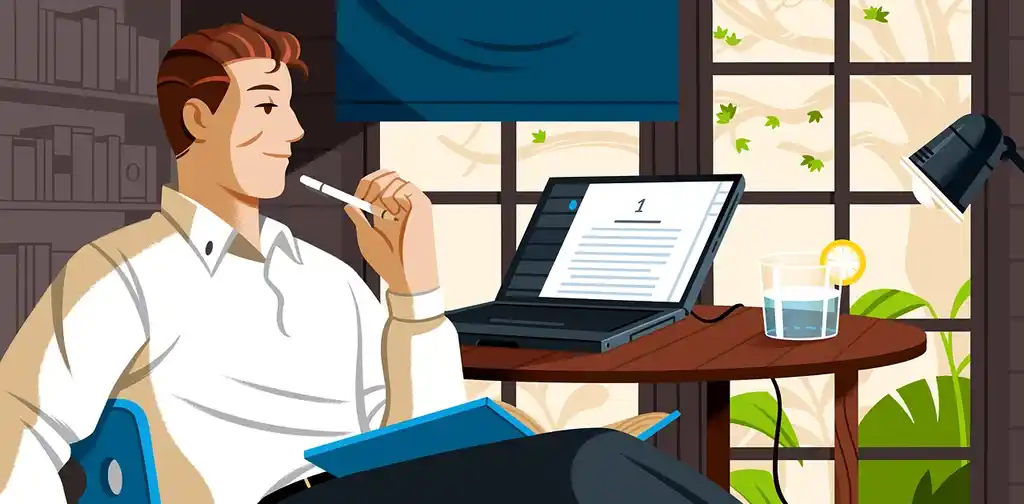
FREE RESOURCE
The Full-Time Freelancer's Checklist
Get our guide to financial and logistical planning. Then, claim your independence.
Reviewed by Linnea Gradin
The editor-in-chief of the Reedsy Freelancer blog, Linnea is a writer and marketer with a degree from the University of Cambridge. Her focus is to provide aspiring editors and book designers with the resources to further their careers.
As the editor of Reedsy’s freelancer blog and a writer on the Reedsy team, Linnea has her hand in a bit of everything, from writing about writing, publishing, and self-publishing, to curating expert content for freelancing professionals. Working together with some of the top talent in the industry, she organizes insightful webinars, and develops resources to make publishing more accessible to writers and (aspiring) publishing professionals alike. When she’s not reading, she can be found dribbling on the football pitch, dabbling in foreign languages, or exploring the local cuisine of whatever country she happens to be in at the time.
